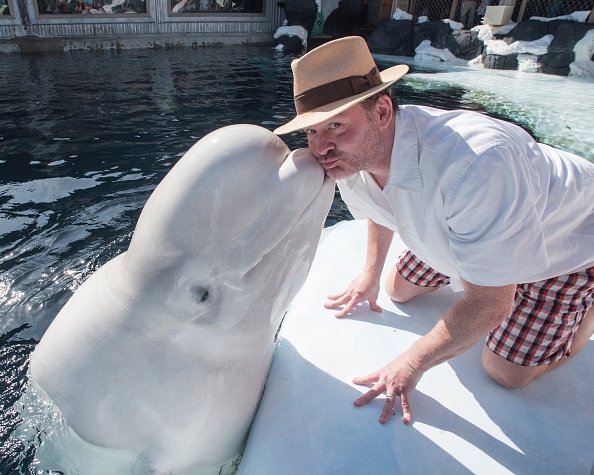Hawaii Humpback Whale Migration Delayed This Year; El Nino Determined As Cause?

The Hawaii Humpback whales are predicted to make slow migration this season. It is said that every year, pproximately 10,000 humpback whales migrate from Alaska to Hawaii in order to mate and give birth.
According to Natureworldnews.com, the sea creatures are slow to return to warmer waters of the said island, specifically this season, which usually marks the animal's migration from Alaska.
A Marine biologist & Coordinator (of the Humpback Whale marine sanctuary) from Maui, Ed Lyman said, "This isn't a concern, but it's of interest. One theory was that something like this happened as whales increased. It's a product of their success", and added in his statement, that, "What I'm seeing out there right now I would have expected a month ago. We've just seen a handful of whales."
The delay in migration to Hawaii is of a particular interest because these kind of iconic animals are famous part of winter on these islands and serves as a major source of income for local tourism. Researchers are not sure about the number of whales that have travelled to the island already, since the population counts of the species are not recorded until last Saturdays of the first three months of the year.
According to the reports of the National Oceanic and Atmospheric Administration (NOAA), every year thousands of these whales move upwards of about 3000 miles from Alaska to Hawaii breeding grounds. To travel such great distances, the farthest migration of any mammal, the said whales spend summer by storing up fat (by filter-feeding on tiny crustaceans).
As cited by Inquisitr, according to the season's El Nino, NOAA has released a climate report about this phenomenon that read: "The Warmer-than-average tropical Pacific waters can have a big impact on marine life. For example, there were large coral bleaching episodes (coral die-offs) during past El Niños, and it's likely we'll see a lot of coral bleaching this year. The warmer water can also affect fisheries, seaweed farms, ocean mammals, and birds."
The humpback whales are protected under 'Endangered Species Act and Federal Law that prohibits approaching them within 100 yards of them during a boat ride. The experts are not yet concerned about this delay in migration to Hawaii despite past population declines that threaten these mammals.



